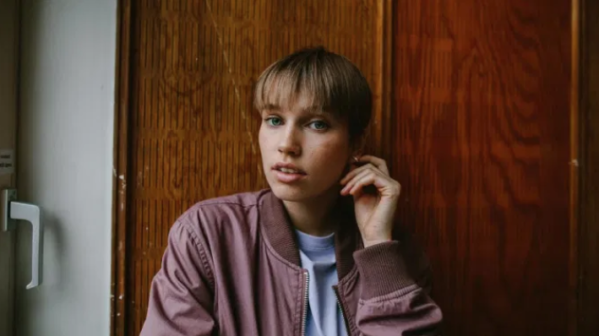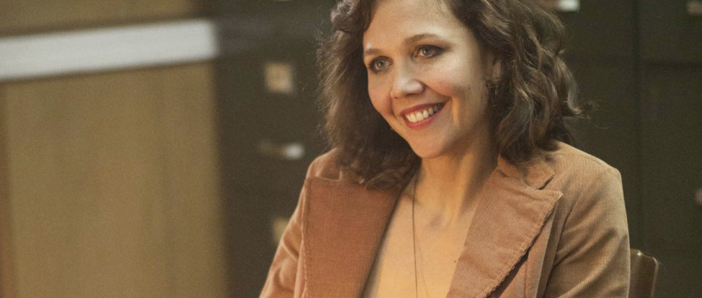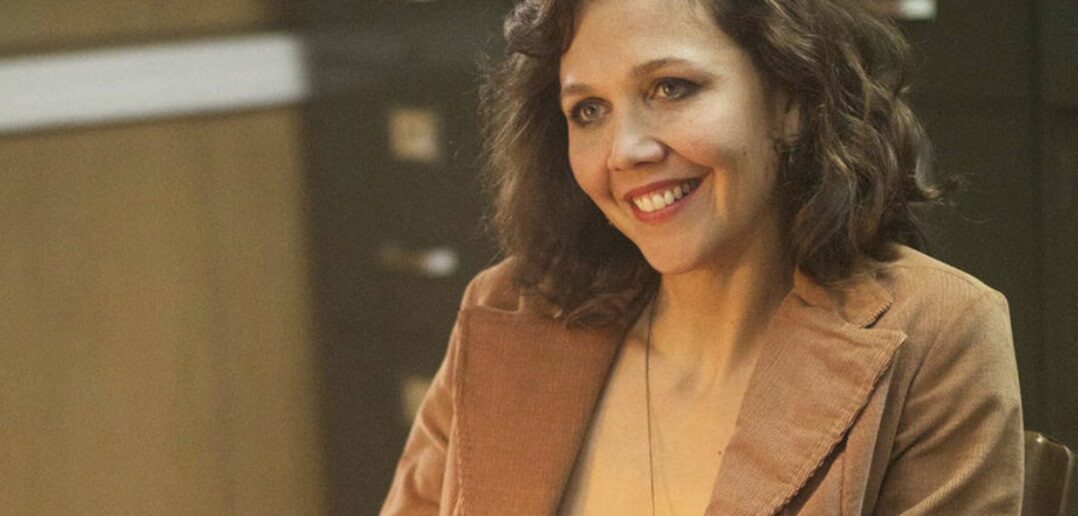Financing TV Production: The Magic Money Tree Grows…
Back in 2019, when talk of pandemics was limited to conspiracy chat rooms and scripted TV development meetings, the MIPCOM Preview explored the changing world of financing TV production. Two years on, we look at how the business of investing in TV production has evolved.
What has changed in TV industry since 2019
At a headline level, there are three clear differences between the TV industry in 2021 and the way it was back in 2019.
First, Covid-19 has caused the cost of production to rise. In part, this is because of the need for health and safety compliance. But it’s also linked to the production backlog caused during 2020. With producers vying for the same studios, talent and crews, price inflation is likely to remain a feature of the international TV market until at least 2023.
Secondly, the battle for streaming supremacy has gone to the next level, with Disney+ and Warner Discovery taking on Netflix, Amazon Prime and Apple TV+, among others. With billions of dollars at their disposal, the streamers are forcing smaller players in the global content business to reassess how they finance and produce great shows.
Thirdly, and not quite so visible, is the trend towards budgets cuts among traditional broadcasters. The BBC’s recent announcement is a high-profile example of this — but not isolated. And it’s likely that if, in France, TF1 and M6 complete their merger it will also reduce editorial spend.
So, with these observations in mind, how does the business of financing TV production today, compare with what we were saying back in 2019?
The Rise and Rise of International Co-productions
Co-production was a prominent theme in 2019 and the three factors referenced above have conspired to accelerate this trend. As in 2019, there is a growing willingness among broadcasters to join forces behind a unified creative vision — often with a distributor involved from the outset. Evidence that this is the default option for many productions includes the news that Germany’s ZDF has joined Acorn TV and distributor Dynamic TV as a co-producer on scripted series Harry Wild. Written by David Logan (Last Christmas), the series has also seen Mediawan pre-buy French-speaking Europe, and RTÉ joins as the Irish broadcaster.
Another production that reinforces the point is Conversations With Friends, a BBC3 UK/Hulu US co-production that has Endeavor Content on board as distributor. Partners secured by Endeavor include Amazon Prime Video (Canada, Australia, New Zealand and Africa), HBO Max EMEA (Spain, Portugal, Nordics, CEE, Netherlands and Baltics), Lionsgate Play (India), SYN (Iceland) and Wavve (Korea). An interesting side note about this line-up is the number of streaming platforms involved.
The key point about scripted shows like these is that they don’t attempt to shoehorn locations and characters that reflect the profile of the funding partners, they allow the creative to take the lead.

Alison Oliver, Sasha Lane, Jemima Kirke, Joe Alwyn (Photo BBC)
The Role of Regional VOD Buyers
Before the pandemic, one of the interesting concepts we discussed was ‘commissioning club’ Atrium. This was a loose collective of regional OTT players and telcos that was brought together by Modern Times Group-owned distributor DRG. Put simply, Atrium’s goal was to create premium drama content by pooling funding behind great ideas. Today, DRG no longer exists, having first been renamed and then sold to All3Media International. However, the commercial concept has grown in significance.
The key observation underpinning Atrium was that local and/or regional VOD platforms would emerge as key funding partners — and this has certainly come to pass. At MIPTV 2021, for example, The Wit’s Virginia Mouseler drew attention to Delete Me, a Federation Entertainment show for Nordic streamer Viaplay about two teen girls who get embroiled in a sex-tape scandal. Elsewhere, Red Arrow Studios International (RASI) is currently distributing Blackout – Tomorrow Is Too Late, a thriller commissioned by Joyn and Sat.1 in Germany.

Delete Me. Photo: Nicolas Peyrau/Federation Entertainment
Another project that captures both this point (and also the previous point about co-productions) is Eden, a show from Stan (Australia) and Spectrum (US). Distributed by All3Media International, the show has also been picked up by Canal+ in France, and CMore in the Nordics.
With platforms like BritBox, Salto and Viu also growing in significance, this sector looks set to become a core part of funding models — though probably in a more flexible way than Atrium initially envisaged.
Distributors as Primary or First-mover Financiers
Pre-Covid there was a growing tendency for distributors to refer to themselves as ‘mini- commissioners’. This language is not used so much now, but the core principle remains — namely that distributors are playing a much more active role in the shaping of content and investing in TV production. There are two reasons for this. Firstly, because they are able to feedback market intelligence to producers on what buyers are looking for. Secondly, because they are taking on greater financial risk than previously — with distributor contributions to budgets sometimes as big as broadcasters. At MIPTV, Drive joint managing director Ben Barrett explained how helping producers get shows off the ground is going to be “a bigger part of the distributor’s job in the future”.
This model is especially prominent in factual TV, where the risk being absorbed by distributors is much more manageable than in scripted.
Non-traditional Financiers are Starting to finance TV Production
Between 2017-2019 there was a steady stream of new entrants to the content market. Big things were promised, but this sector has gone a bit quiet since the onset of the pandemic in 2020. There hasn’t been much news out of Benchmark TV, the BBC’s joint venture with Access Entertainment, for example; while there has been little public domain information since Silver Reel launched its fund to back UK high-end TV in 2017. One possible explanation for this is the pandemic, with scripted series taking a notoriously long time to develop even when times are good. But the rise of the global streamers may also be an issue, with rights to premium drama series increasing locked-up by Netflix and others.
Having said this, there has been some activity in this category. Little Drummer Girl producer The Ink Factory, for example, has extended its co-financing facility with 127 Wall.
Simon and Stephen Cornwell, co-CEOs and Founders at The Ink Factory, said: “At this difficult time for the industry, the continued support of 127 Wall, alongside our recently announced investment from Endeavor Content, is appreciated. Our ability to dedicate increased resources to our development slate and make sure we are in the strongest possible position when the industry emerges from hiatus is hugely important, and it is the support of our partners that has made that possible.”
Financier Anton, meanwhile, is teaming with former BBC Studios exec Tobi de Graaff on Beiboot Representation, a development, packaging and financing operation. The London-based venture is fully backed by Anton, and will focus on European-produced premium TV content.
Also in this sub-set, Anthology Group (previously known as Bob & Co) has announced that one of its indie producers, Woodcut, is launching an international sales division. Linking this section back to the previous point about proactive distribution firms, Anthology says Woodcut International “benefits from a substantial investment fund that has been created to co-finance new projects over the coming years”.
Financing TV production : Gamers as Funders?
There has been an increasingly close connection between gaming and TV — manifested in various forms. Games as TV content, for example, in the form of esports. And games as the basis of films and TV series such as Halo, Candy Crush and Mortal Kombat.
Now, perhaps, we are seeing the emergence of a trend where the gamers become financiers as well. This year saw Rovio Entertainment inject €5m of investment into Gutsy Animations, the creators of the Moominvalley 3D animation series.

Moominvalley. Photo: Gutsy Animations
Best known for its Angry Birds franchise, Rovio’s investment secures it the range of rights to develop and publish Moomin IP-based games. Rovio’s first Moomin game is already being developed.
The deal is interesting because it could be characterised in various ways. From one angle it looks like an IP acquisition deal (like buying book rights), but from another it resembles an L&M arrangement. With TV and gaming starting to merge, it also has some of the attributes of a content distribution deal. However it is defined, it could represent the emergence of a new revenue stream for TV.
Rovio CEO Alex Pelletier-Normand said the partnership would “diversify our IP portfolio, which is a key step in our growth strategy. We are already working on a mobile game that is still in early phase of the development, and we expect it to reach soft launch later this year.
Reinvention of Advertiser Support for Content
Just as in 2019, advertising agency networks continue to have a key role to play in supporting content creation, part of their strategy of decreasing reliance on traditional spot advertising. Like everyone, their options have been limited by Covid-19, but WPP’s Motion Control Group (MCG) is once again a partner on ITV’s hit entertainment series Love Island. Other MCG-backed projects include Studio Lambert-produced The Circle for Netflix and Moonage-produced Intergalactic for Sky.
Dentsu-backed The Story Lab continues to be an active backer of content, and has recently unveiled a new management team headed by joint MDs Cathy Boxall and Fotini Paraskakis.
At the time of their appointment, Fotini Paraskakis said: “This last year has really highlighted the strategic importance of having both fresh and relevant content and the ability to get that content seen by the consumer, on their terms and in ways that work for them. As we look ahead, we can see this being even more significant to client objectives as the whole consumer, entertainment and marketing ecosystem evolves.”
Dentsu is a Japanese firm and has clearly spotted an opportunity to use The Story Lab as a conduit for ideas originating in that market. Already this year, The Story Lab has unveiled a partnership with Japanese broadcaster Fuji Television Network to create IP for the global market.
Yuki Matsumoto, producer at FTN, said: “Our partnership with The Story Lab will allow us to develop IP tailored for global audiences while retaining the exciting elements that make our shows stand out.”
Also this year, The Story Lab joined forces with Japanese broadcaster Nippon TV on a new game-show format called 9 Windows.
The Emerging Role of AVOD
In 2019, the main talking point was the growth of SVOD — and to a large extent this is still the case. But as noted in the last edition of MIPBlog, AVOD is now growing fast thanks to services like Peacock, Tubi and Pluto. AVOD is a new opportunity for distributors to make money out of older shows that don’t have the same currency as they used to. It’s also a way for them to get into the channel business. A growing number of companies are launching so-called fast channels, which are often based around single shows or tightly defined editorial themes. Blue Ant Media, for example, recently launched HauntTV and Crimetime on Samsung TV Plus in Canada. Likewise, Pluto TV recently added seven niche channels via a partnership with All3Media International. It’s early days for AVOD channels, but any incremental revenue from this kind of activity can be fed directly back into a distributor’s acquisition strategy.
Of course, not to be overlooked in this category is YouTube’s increasingly ambitious approach to factual commissioning — with recently originals including four-parter 30 Days With: Bretman Rock.
Financing TV production : The Development of Strategic Collaborations
We’ve already discussed project-based alliances such as co-productions, but increasingly the pursuit of additional revenues has seen the creation of long-term alliances. In the UK, the BBC and ITV are rivals in many respects, but that didn’t stop them joining forces to form SVOD platform BritBox.
Further expanding this alliance, ITV Studios and BBC Studios India have just signed a production partnership deal to adapt popular ITV Studios scripted dramas in India. Under the terms of the deal BBC Studios India will bring to life the ITV Studios shows Gold Digger, Sticks And Stones, Trauma and 35 Days. BBC Studios will also look at taking these dramas to the ever-growing regional markets of Tamil and Telugu.
Sameer Gogate, general manager of BBC Studios India Productions, said: “British dramas really resonate with Indian audiences, as we have seen with the success of Criminal Justice and Doctor Foster.”
East-West strategic alliances are also part of this trend towards commercial and creative collaboration. A case in point is Red Arrow Studios International’s new co-development partnership with Japanese commercial broadcaster TV Asahi. The first project in development by the partners is Crazy Elevator, a new game show in which players try to reach the top of a tower to claim treasure.
The Public Funding Pillar
A 2019 MIPCOM Preview story noted how TV funds and tax credits play a key role in financing TV production — with an increasing number of countries extending their film-support systems to include television drama. While Covid-19 caused a hiatus in production in many parts of the world, this summary is still broadly true. Indeed, many leading production hubs around the world are relying on local subsidies and incentives to help kickstart production.
At the height of the pandemic, countries that offered subsidies and had also managed to keep the virus in check, benefited from an influx in work. A case in point is Greece, which increased its tax incentive during 2020. Despite the problems presented by the pandemic, Greece was able to host The Lost Daughter, an adaptation of Elena Ferrante’s novel starring Olivia Colman, Dakota Johnson and Paul Mescal. This was initially planned for a North American shoot but moved to Greece (the island of Spetses) during the pandemic.

Maggie Gyllenhaal in The Lost Daughter. Photo: Endeavor Content
Looking at some of the shows referenced above, Conversations With People was co-financed by Northern Ireland Screen, while Eden has received major production investment from Screen Australia in association with Screen NSW. Overall, Australia has attracted 13 international film and TV series since July 2020 with productions keen to secure federal and state government rebates and grants.
Worth noting also is that public sector support has played a critical role in sustaining the industry through the current crisis. Not only have governments paid the salaries of many workers during the crisis, they were also forced to step in to underwrite production insurance.
TV Trends in your inbox? Fill in your details to subscribe to the MIP Newsletter →
For more information on TV Trends, attend MIPCOM and MIPTV
You can read also :
Super aggregators of TV content




